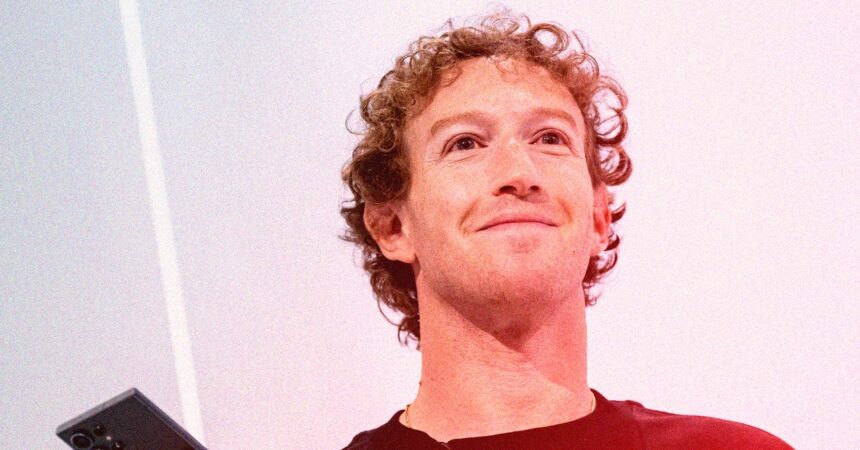The Shifting Landscape of Social Media Moderation: Zuckerberg’s New Era at Meta
The recent political upheaval in the United States, marked by the restoration of Donald Trump to the presidency, has sent ripples through various industries, most notably in Silicon Valley. The response from tech giants, particularly Mark Zuckerberg, founder and CEO of Meta, is emblematic of the broader cultural and political shifts underway. His recent announcement of significant changes to Meta’s content moderation policies reveals a strategic pivot towards "free expression," signaling a potentially tumultuous era for social media platforms.
The Shift Towards Free Expression
In a notable Instagram video, Zuckerberg unveiled expansive policy revisions at Meta, impacting Facebook, Instagram, and Threads. He articulated a vision in which the platforms would prioritize “free expression” over moderation, stating that previous restrictions had veered into what he described as “censorship.” This change is underpinned by a clear shift in rhetoric, as Zuckerberg borrowed phrases and ideas commonly used by right-wing commentators. By framing content moderation as censorship, he aligns with political actors who have long criticized tech companies for stifling conservative voices.
Zuckerberg’s justification for this overhaul hinges on the notion that the recent elections represent a cultural turning point. He explicitly connected the timing of these changes to the political realignment in the U.S., noting, “The recent elections also feel like a cultural tipping point towards once again prioritizing speech.” This raises pressing questions about the role of private companies in shaping public discourse and the implications it has for misinformation and hate speech.
Implications for Public Discourse
The cessation of partnerships with third-party fact-checking organizations and a retreat from vigorous efforts to combat hate speech could foster an environment where falsehoods flourish unchecked. During Zuckerberg’s tenure, Meta has faced enormous scrutiny for its role in spreading misinformation, particularly throughout the 2016 election cycle and the Covid-19 pandemic. The changes announced are likely to reignite concerns over the platform’s responsibilities as a gatekeeper of information in an era of heightened political polarization.
Zuckerberg’s insistence that he aims to reduce “censorship” may resonate with advocates of unfettered speech, but it simultaneously presents a paradox. While private companies have the right to establish their own content guidelines, the lack of moderation could lead to the proliferation of harmful content, challenging the social fabric and public safety.
A New Leadership Direction
Zuckerberg’s shift is further underscored by recent personnel changes at Meta. The appointment of Joel Kaplan, a former GOP operative, to a key role and the addition of Dana White, a fervent Trump supporter, to Meta’s board, highlights an intentional alignment with conservative ideals. This underscores an emerging trend where major tech platforms appear to be adjusting their governance in accordance with whichever political party holds power, raising ethical concerns about the integrity and motivations behind content moderation decisions.
Moreover, Meta’s decision to relocate its trust and safety teams from California to Texas explicitly ties the move to a political context. Zuckerberg argued that working in a location perceived as having “less concern about the bias of our teams” could engender greater trust in their work. However, this raises the issue of whether bias can effectively be neutralized by geographical relocation alone, and whether this move signals a strategic embrace of a conservative political outlook.
Conclusion: Navigating the Challenges Ahead
Zuckerberg’s latest policy direction and adjustments in personnel and geography mark the dawn of a new chapter for Meta and social media as a whole. While the intention of promoting free expression may be commendable, it invites scrutiny regarding the potential for increased misinformation and harmful content.
As we embark on this new era in which social media platforms redefine their roles in public discourse, it will be crucial to monitor the outcomes of these policy changes and the implications they have on the fabric of society. Will Zuckerberg’s gamble to align with a new political regime ultimately foster a healthier public conversation, or will it exacerbate the existing divisions in our society? Only time will tell. What remains clear is that as we move forward, the stakes have never been higher in the ongoing debate about the power and responsibilities of social media platforms in shaping our democracy.










